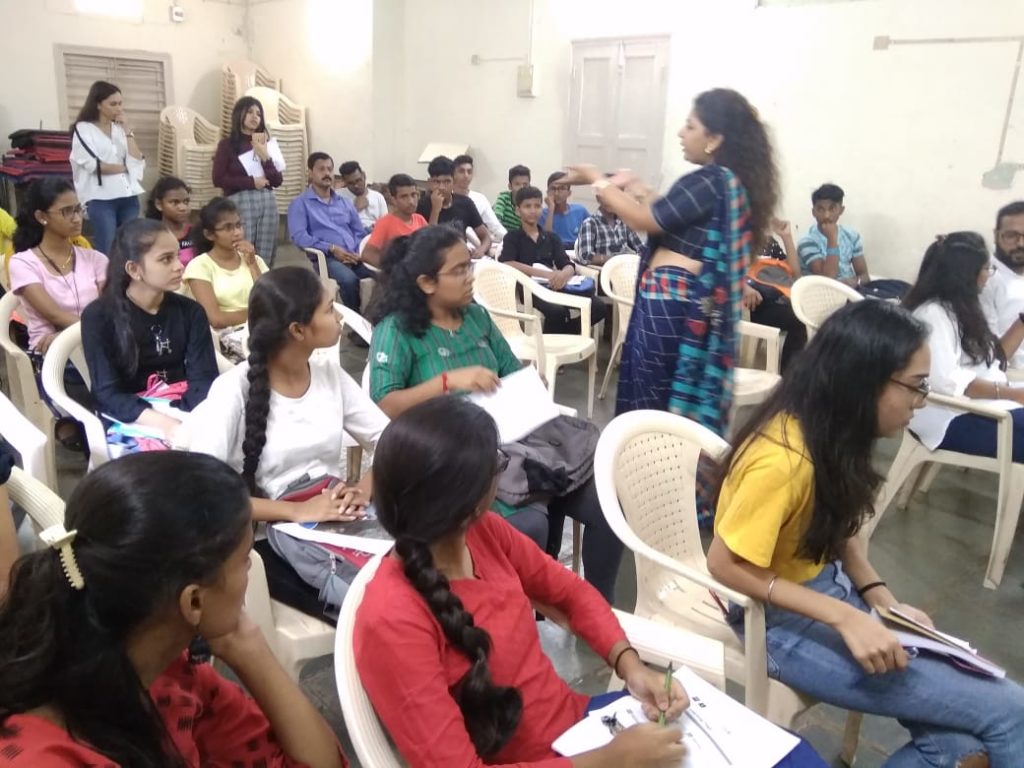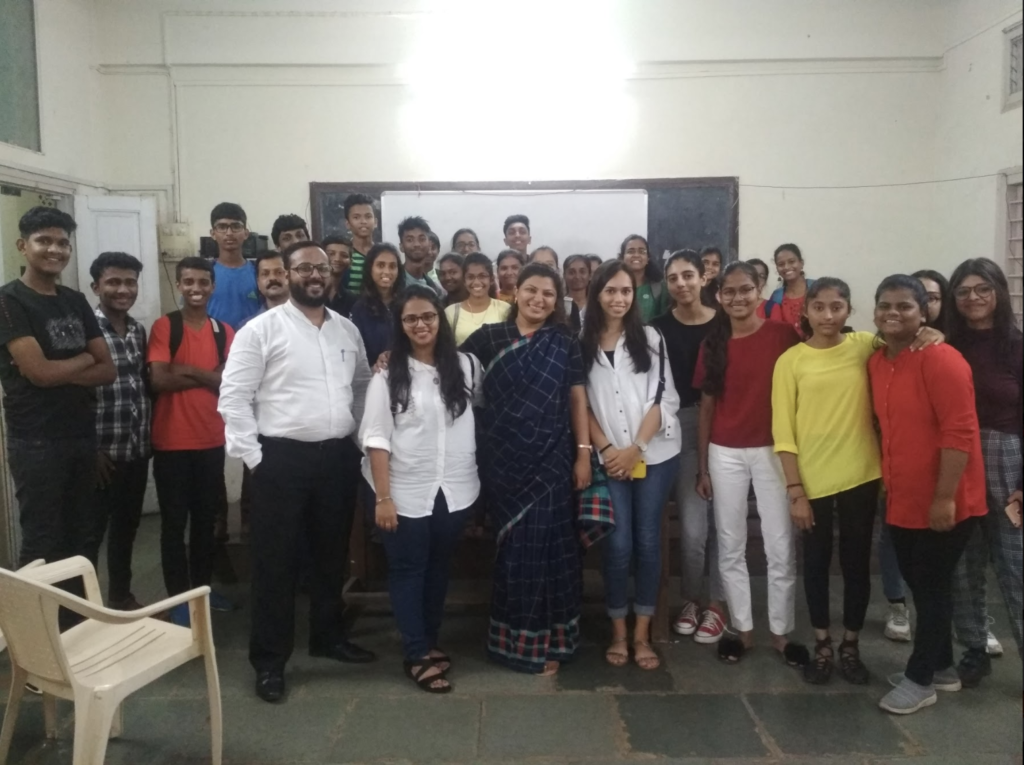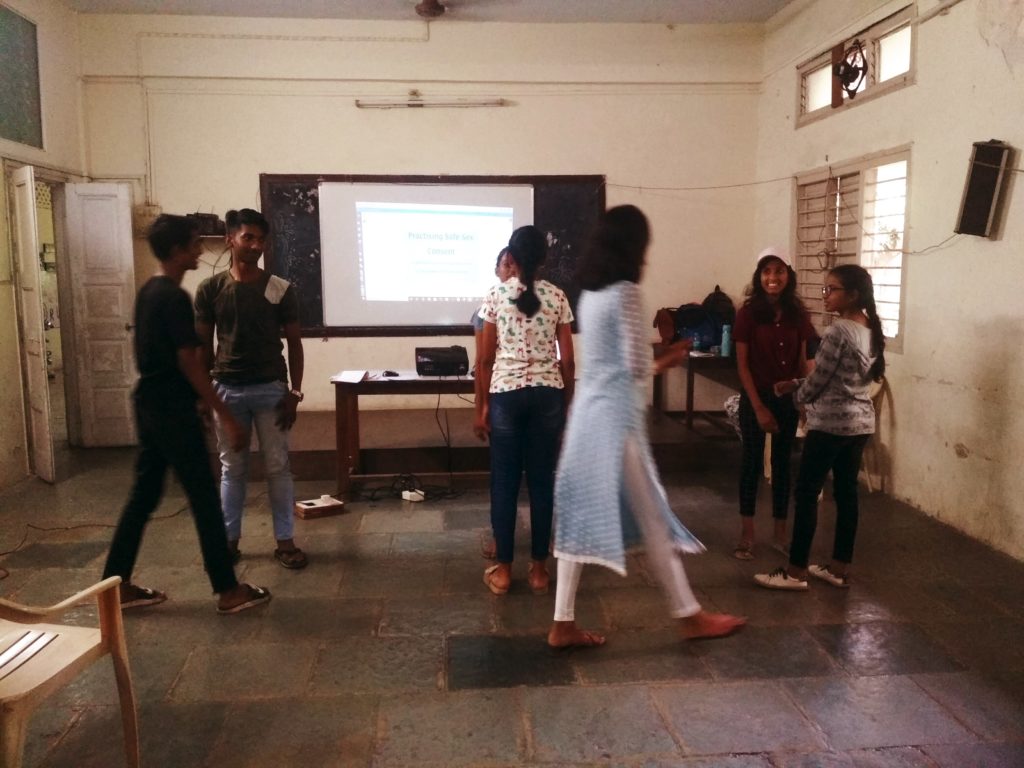Patang Scholars Class of 2021 Highlights
Written by Sumit Jagtap, November 17, 2019
Written by Sumit Jagtap, November 17, 2019
Our second batch of Patang Scholars have been attending workshops on a diverse range of topics. Let’s take a look at two of them:
Conversation with Vakeel Mitra
Law in simple terms can be understood as a set of norms codified for the regulation and proper functioning of the social, political, and cultural aspects around us. Understanding law is important because it makes us aware of our basic rights, responsibilities, and duties towards ourselves, others, and our nation.
The KSHRujan team invited Vakeel Mitra, a free legal aid organization, to interact with our first-year students. The session started with a brainstorming activity where students were asked questions regarding India, law, civil rights, and our constitution.
The speaker then narrated a few episodes from our Indian freedom struggle. He spoke about Pt. Nehru, Dr. Ambedkar, Mr. Gandhi, Sardar Patel, and other freedom fighters who contributed to nation-building. It was like he had taken the students into the past and was making them observe what had happened then. As he discussed independence and how the new constitution was drafted, there was clear pride and patriotism on the students’ faces.


The team further demonstrated the 4 pillars of our democracy: legislation, executive, judiciary, and the media. To better explain the Lok Sabha and Rajya Sabha, the class was divided into two and 2 parties were created along with the speaker and other officer barriers of the Houses. A “bill” was introduced and discussion was initiated. It was amazing to observe the students discussing the bill, putting forth their views, and defending it to the core. It was like a mini parliament!
As the session drew to a close, the team explained the importance of law in society and discussed a potential career avenue in law. The session helped the students understand the law-making process, its importance, and the career scope in it.
Decoding Gender and Sexuality
Gender and sexuality are important aspects of human life and play an important role in our physical and mental lives. However, these terms are misinterpreted and misrepresented. Even today in modern society, sex and gender are considered taboo topics.
In collaboration with the KSHRujan team, the Patang Scholars Program organized a workshop aimed at sensitizing our students to gender and sexuality and clarifying misconceptions around gender, sex, and other identities.
The workshop was facilitated by a guest speaker with a Masters of Art in Women Studies from the Tata Institute of Social Sciences. At the beginning of the workshop, she initiated a general conversation, understanding that it was important to create a comfortable environment for the sensitivity of the topic. She then began discussing the difference between the male and female bodies and the changes that occur in them. Students were quick to respond to her questions. She then asked them their perspective on gender and sex. The response was mixed: few said the terms were the same while others said it was different but were not sure how.
The speaker went on to explain both the concepts to the students. She explained that ‘sex’ is a biological construct whereas ‘gender’ is a social construct. In simpler terms, sex is something that a human being is born with whereas gender is something that a human identifies with.

This increased the curiosity of the students and they asked questions on its origin and impact. They learnt that ‘sex’ is biological and can’t be changed whereas gender is a manmade concept that can be changed, depending on what a person identifies. The session created a learning point for the students. They attentively listened to the speaker and learned about the different types of identities, the patriarchy and matriarchy, gender-based violence, and body shaming.
The workshop provided a new lens for the students to understand sexuality and gender-based issues and concluded with a strong positive sense of the need for creating gender-neutral spaces for all.